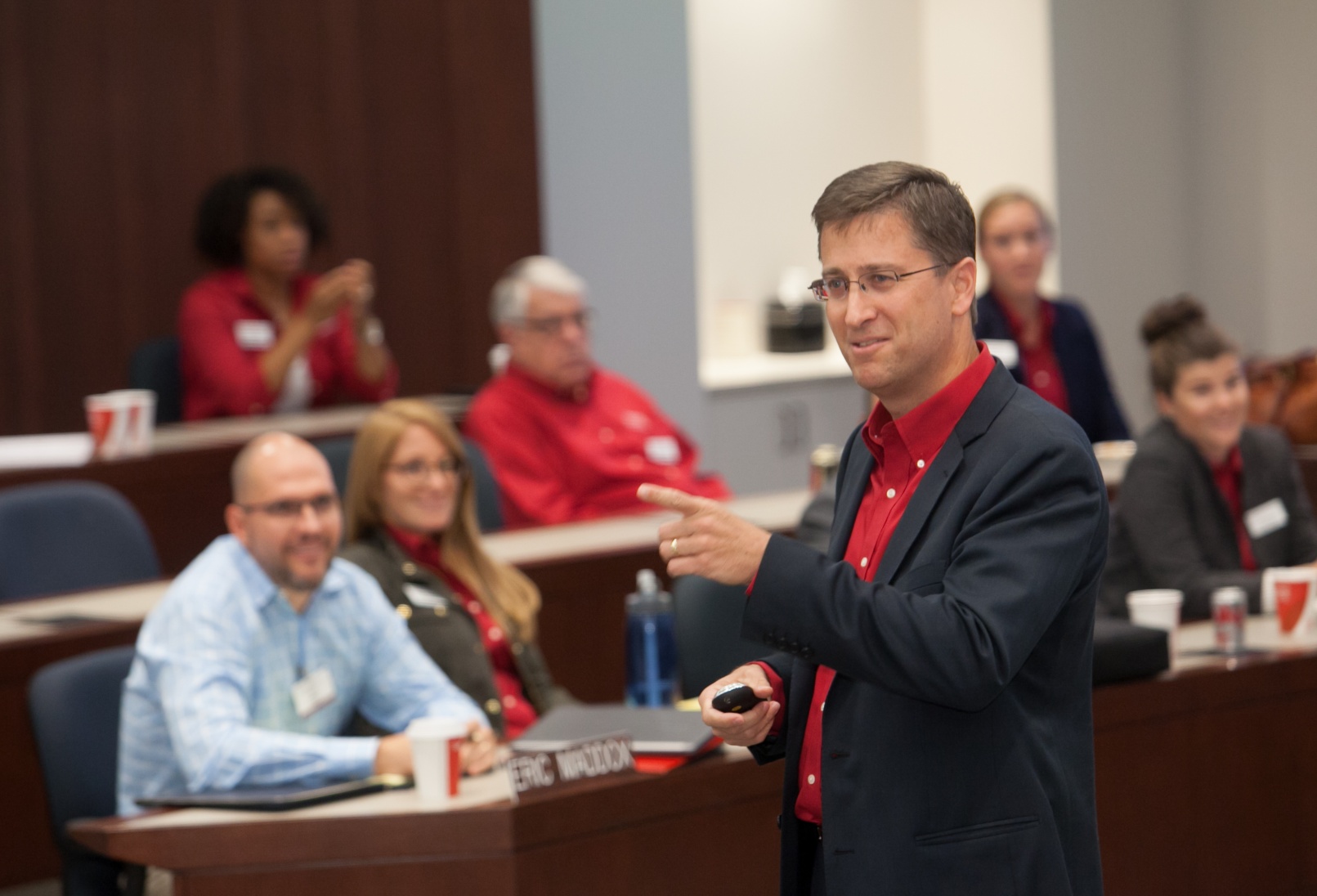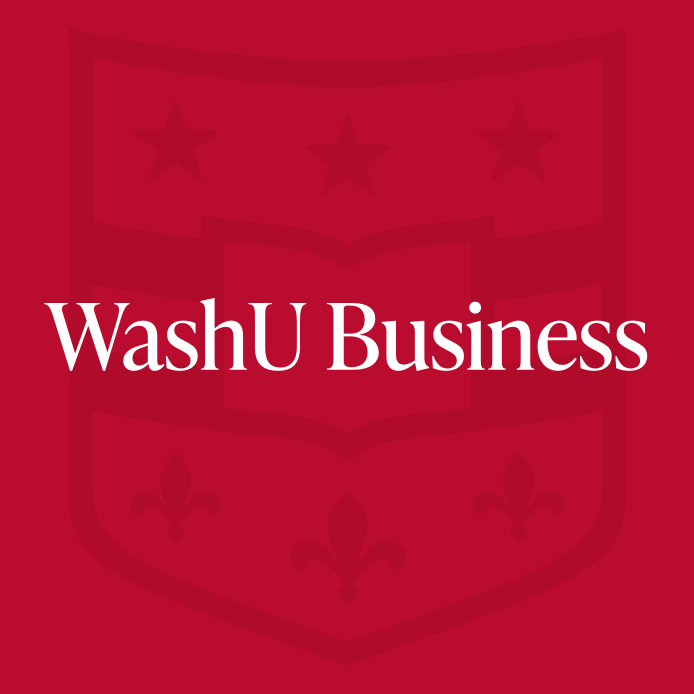What can you expect to get from an executive MBA program?
- September 9, 2022
- By WashU Olin Business School
- 3 minute read

If you’re a working professional and considering continuing your education, a large part of your decision to continue studying and what program to pursue is the ROI of an MBA. You want to know what the benefits and potential career impact of an MBA are for you as an individual, not just as a statistic. Once you’ve decided that continuing education is for you, you’ll want to pick a program that fits your needs.
The WashU Olin Business School offers many types of MBA programs. Before you get overwhelmed, consider whether to pursue an executive MBA or a full-time MBA program. In both programs, students can expect to receive a values-based, data-driven, leadership-focused curriculum.
Our full-time program has a subset called the global immersion, in which students travel abroad for six weeks and learn about conducting business in different cultural climates. The full-time MBA program allows students to fully dive into the experiences Olin Business School has to offer through the curriculum. If you’re working, taking care of your family, or have responsibilities that take up most of your day, however, a full-time program might not be the best fit for you.
A better option can be our part-time, leadership-focused Executive MBA program, which meets once a month for three days (Thursday, Friday and Saturday). Students can expect three additional residencies or immersive experiences. The part-time nature of the EMBA allows working professionals to continue working at their jobs while attending university on a flexible schedule compared to the full-time program, in which your “job” is to go to school.
How can pursuing an executive MBA degree affect your career path?
First, students are working with executives from different areas and industries in their cohorts. There is a lot of diversity in the different histories, industries and educational backgrounds of the other students. When diversity is introduced into the student cohort, it helps everyone reconsider their current ways of solving problems because they’re challenged by this new group of intelligent people.
Additionally, the Executive MBA program offers both leadership coaching and career coaching for students. Students can create and implement their own leadership trajectories for their careers. Through executive career coaching, students learn how to communicate their brands to become better leaders.
Finally, the executive network of the student cohort and business partnerships leads students to form a strong group of friendships and alliances with other companies and industries—helping students ultimately build lasting networks that help cultivate more talent going forward. With these partnerships in tow, students can return to their workplaces and make an immediate impact. Students apply what they learn on the job and help grow their own organizations or teams.
The ROI of an EMBA
We’ve hinted about it before, but graduated cohorts have found measurable ROI from their executive MBAstudies. In one of our most recent cohorts, we found that over 50% of that cohort had either been promoted or had switched to a new position during the program. This speaks to the immediate impact of what they were learning; students were able to create value in their workplace and either become promoted or feel confident enough to find their own path.
Olin’s Executive MBA program is about to enjoy its 40th year. Our educators have been constantly crafting, honing, and updating this program to keep it current, fresh and leadership-oriented. We’ve had so many great success stories over the years. Some students have been successful at running their own startups, and others have taken higher positions within their existing companies or their competitors through references from their cohort and professors.
It all comes back to that immediacy of people being able to take what they learn and apply it right away. We often talk about students “having better Mondays:” They return to work after those three days at Olin ready to execute something new they learned in their coursework. Students who embrace what they’re learning can apply these techniques right away to their work and make an impact on their careers, leading to immediate ROI and continual growth throughout their professional lives.
Pictured at top: Olin Professor Stuart Bunderson teaching an EMBA class at WashU Olin.
Media inquiries
For assistance with media inquiries and to find faculty experts, please contact Washington University Marketing & Communications.
Monday–Friday, 8:30 to 5 p.m.
Sara Savat
Senior News Director, Business and Social Sciences
